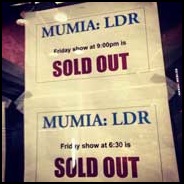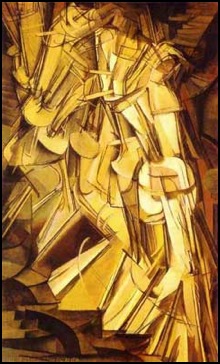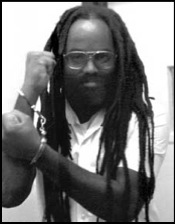New York, New York (Part II)
09/02/13 14:32

Written by Stephen Vittoria
(at 36,000 feet)
Four years ago, I began walking down a road that I knew was right, that I knew was worthy, that I knew was winding its way toward the heart of justice. This weekend, in New York City – the island that sits hard between rivers East and Hudson – was home for our film “Mumia: Long Distance Revolutionary” – and rightly so. It is, after all, the center of the universe… so if Mumia’s tragic, joyous, and courageous story was to debut, it should be in the center of the universe… and debut it did.

Some of the reviews from the mainstream press are precious in how obvious and predictable they can be. In fact, leading up to the release of the film, we were already speculating and bantering about what their critiques would sound like… “journalists” who rail against documentary filmmakers (and other independent journalists for that matter) for having the audacity to exhibit a strong point of view. It freaks them out. They throw around terms like agit-prop and hagiography to define a narrative that has the strength to stake a claim and then back it all up with undeniable facts, strong research, and incisive third-party credibility. They continue to enable the mythmakers to spin their vindictive venom about Mumia. These puppets would have told Frederick Douglass to shut up, just like they told Dr. Reverend Martin Luther King, Jr. to shut up when he called the U.S. Government “the greatest purveyor of violence on the planet.”
First newsflash: there are no objective documentaries or documentary filmmakers, or journalists, or historians. We are all influenced by a million factors and that influence molds the narrative. Filmmakers that say they have “no agenda” are lying to you. We all do – some of us just wear it on our sleeve. Ask Michael Moore.
And the best part of their pathetic attack is that they never attack the facts or the research or the salient moments in the film. Ask Julian Assange how much support he’s received from the so-called press. They don’t attack the veracity of the material he releases or the deadly consequences he’s trying to shine a light on, no – these fellow “journalists” attack his right to release the material, or more specifically, YOU’RE RIGHT TO READ AND KNOW ABOUT THE MATERIAL.
In the film, I offered a preemptive strike if you will to this type of “gate-keeping” by the corporate sell-out press:
“It’s interesting how mainstream journalists are never questioned when they’re embedded with troops or hob-nobbing at cocktail parties with generals and corporate criminals. In fact, the conglomerates that sell news never truly challenge the status quo... nor will they will ever speak truth to power.”
Journalist Amy Goodman has asked the rhetorical question that best puts these swine to sleep: “If we had state run media in this country, how would it be any different than what we have right now?” Right on, Amy.

"No. I was delighted to be the ‘succes de scandal’ because for me it was a form of revolutionary action. You see if I were accepted with opens arms that would be the opposite of what I wanted...it wouldn't have fulfilled my intentions. After all, the idea of the Cubists at the time was to be entirely revolutionary and disturb completely every conception of art as it was accepted at that time. Upset the standards… In other words, you little by little get your own little group of people who are with you fighting the big mass against you."
So here’s a second newsflash for our beloved scribes: the audiences simply don’t care about the myth (and impossibility) of so-called objectivity. When given the opportunity to experience an alternative narrative like “Long Distance Revolutionary,” one that doesn’t toe the line of governmental and corporate approval, they gravitate to it with a passion rarely seen… because they know bullshit when they see it and they know the attack on Mumia’s character and story has been well-orchestrated and manipulated from the beginning. Hell, the mainstream press has had thirty years of unspoiled “fun” when it came to this story – a one sided narrative if there’s ever been one. So as Oscar Wilde suggested decades ago – the artist’s responsibility to history is to re-write it.

Now, here’s the intriguing part: the audience showed up… and they kept showing up. All weekend long – right through that masturbatory spectacle known as the Super Bowl. In fact, the film performed so well that the good folks at Cinema Village and First Run Features have held the documentary over for another week, until February 14.
And it’s easy to see why: Mumia’s story of victory, transcendence, and courage is also their story. They are connected in ways that the concrete walls of prison cannot stop. Poet Aya de Leon makes this infinitely clear in the third act of the film with her brilliant spoken word poem In the Flesh:
“No prison walls, cellblock iron bars, solitary hell-hole, death-row speech ban bullshit will ever, ever hold his spirit… There are forces stronger than the State of Pennsylvania and the governor, and there are forces stronger than bars and brick and barbed wire. Didn’t we shout with glee when you freed Geronimo Ji Jaga? Did I cry for joy when you freed Nelson Mandela? Let him be free- in the flesh.”